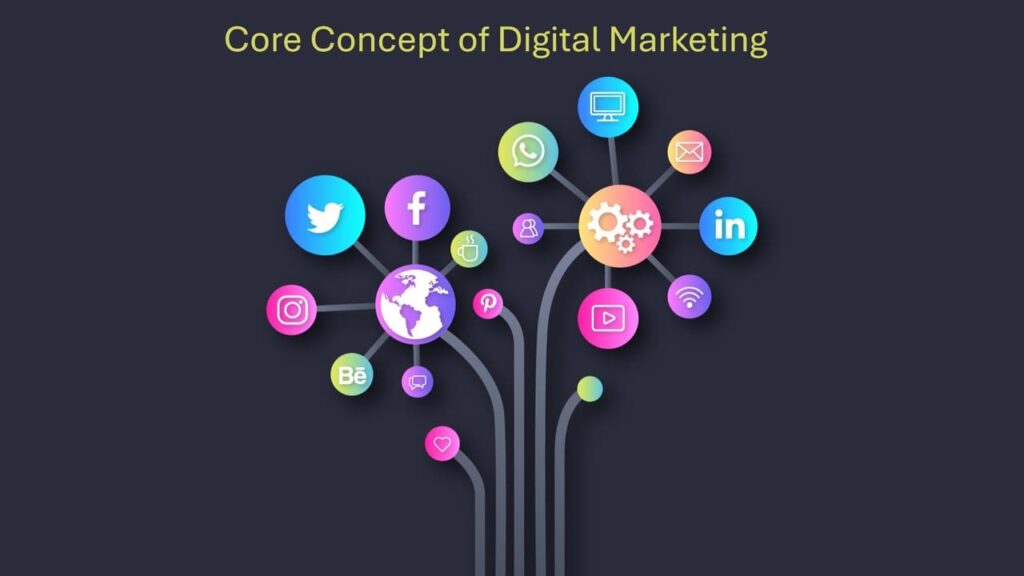
Introduction
What Is Digital Marketing?
Discover the core concepts of Digital Marketing including SEO, content marketing, social media, PPC, and more. Learn how these strategies work together to grow your online presence in 2025. Digital marketing is like opening a shop, not on your street, but on every screen whether it’s a phone, tablet, or desktop. It’s a strategy that uses online platforms to promote brands, connect with customers, and increase sales through digital channels like websites, social media, emails, and more.
Why Is Digital Marketing Important?
Imagine trying to run a business without letting anyone know you exist. That’s where digital marketing steps in. It puts your brand where people are already spending their time—online. From scrolling Instagram to Googling dinner recipes, digital marketing ensures you pop up at the right time, in the right place.
Table of Contents
Core Concepts of Digital Marketing
Content Marketing
Types of Content Used
From blog posts and infographics to podcasts and videos, content is the lifeblood of digital marketing. Each format serves a purpose—blogs educate, videos entertain, infographics simplify, and podcasts build trust.
Role of Storytelling
We’re wired to remember stories, not stats. Content marketing that weaves brand values into relatable stories keeps audiences hooked and builds long-term loyalty.
Search Engine Optimization (SEO)
On-Page SEO
This includes optimizing your website content, titles, and meta descriptions. Think of it as making your shop window more attractive for search engines.
Off-Page SEO
Backlinks from other trusted sites are like recommendations from the cool kids—they build your authority and push your content higher in search rankings.
Technical SEO
A slow, clunky website won’t rank well no matter how great your content is. Technical SEO focuses on site speed, mobile responsiveness, and crawlability.
Social Media Marketing
Platform-Specific Strategies
Instagram is visual, LinkedIn is professional, and TikTok is creative chaos. Each platform requires a tailored approach to engage its unique audience.
Engagement and Community Building
It’s not just about posting content—it’s about creating conversations, responding to comments, and building a tribe around your brand.
Email Marketing
Email List Building
An email list is like your VIP club. People opt-in to hear from you, so treat them well with valuable content, not just sales pitches.
Email Campaign Optimization
Split testing subject lines, tracking open rates, and automating follow-ups help boost the effectiveness of email campaigns.
Pay-Per-Click Advertising (PPC)
Google Ads
These are those top search results you see labeled “Ad.” With Google Ads, you’re paying to be on top of the pile—instantly.
Social Media Ads
Platforms like Facebook and Instagram allow you to micro-target users based on interests, behavior, and demographics, making your ads super efficient.
Affiliate Marketing
How It Works
You let others promote your product and pay them a commission for each sale. It’s performance-based and low-risk.
Benefits for Businesses
Affiliate marketing expands your reach without upfront investment—ideal for startups and small businesses.
Influencer Marketing
Micro vs. Macro Influencers
Macro influencers have reach; micro influencers have engagement. Depending on your goals, each offers unique advantages.
Measuring ROI
Track metrics like engagement, clicks, and conversions to see if your influencer campaign is worth the investment.
Marketing Automation
CRM Integration
Customer Relationship Management tools store data that helps you deliver more personalized experiences.
Workflow Creation
Automated workflows can send welcome emails, retarget users, and even close sales while you sleep.
Mobile Marketing
SMS and Push Notifications
These are direct, immediate, and boast some of the highest open rates in marketing.
Mobile App Marketing
Promoting your app via ads or cross-platform campaigns ensures higher downloads and engagement.
Analytics and Data-Driven Marketing
Tracking Tools
Google Analytics, Hotjar, and Facebook Pixel are your eyes and ears. They tell you what’s working and what’s not.
Measuring KPIs
Track KPIs like traffic, conversions, bounce rate, and ROI to fine-tune your strategies for better performance.
Integration of Digital Marketing Channels
Omnichannel Marketing Strategy
Consumers jump between channels—Instagram, websites, emails—so your strategy must be seamless across all touchpoints.
Personalization and Customer Journey Mapping
Know your audience. Map their journey and personalize content accordingly to guide them smoothly from interest to purchase.
Future of Digital Marketing
AI and Machine Learning
AI tools like ChatGPT and predictive analytics are helping marketers automate and personalize like never before.
Voice Search and Smart Devices
With Alexa and Google Assistant gaining traction, optimizing for voice search is the next frontier.
Conclusion
Digital marketing is no longer optional—it’s essential. By understanding and applying its core concepts, businesses of all sizes can connect, engage, and convert like never before. Whether you’re a startup or an enterprise, mastering these elements opens doors to endless online possibilities.
FAQs
1. What is the most important element in digital marketing?
While all elements are important, content is the foundation. Without good content, SEO, social media, and email won’t work effectively.
2. Is SEO still relevant in 2025?
Absolutely. SEO evolves with search engine algorithms, but it remains a key traffic-driving force.
3. Can small businesses compete in digital marketing?
Yes, with smart targeting and low-cost tools, small businesses can achieve big results.
4. How long does it take to see digital marketing results?
Some strategies like PPC show immediate results, while SEO and content may take 3–6 months.
5. Do I need to use every digital marketing channel?
No, focus on where your audience spends their time and scale gradually.
- Ultimate Guide For Guest Posts, Build Backlinks & Optimized SEO in 2025
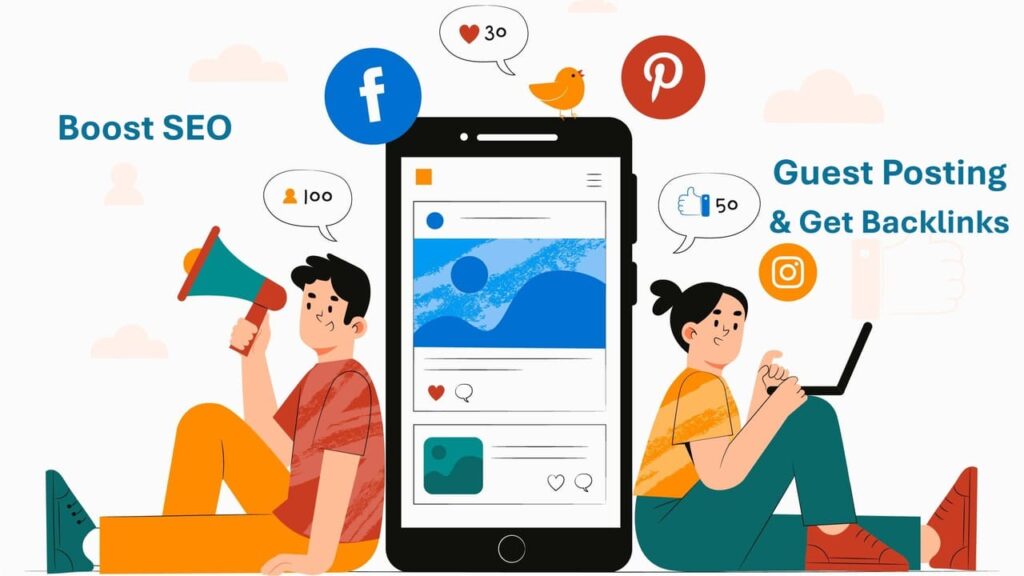 Introduction Ever heard of guest posting and thought, “Is this still a thing?” Well, the answer is a big, loud YES. Despite all the changes in Google’s algorithms, its remains one of the most powerful… Read more: Ultimate Guide For Guest Posts, Build Backlinks & Optimized SEO in 2025
Introduction Ever heard of guest posting and thought, “Is this still a thing?” Well, the answer is a big, loud YES. Despite all the changes in Google’s algorithms, its remains one of the most powerful… Read more: Ultimate Guide For Guest Posts, Build Backlinks & Optimized SEO in 2025 - Top 15 Types of Content Marketing and How to Use Them Effectively in 2025
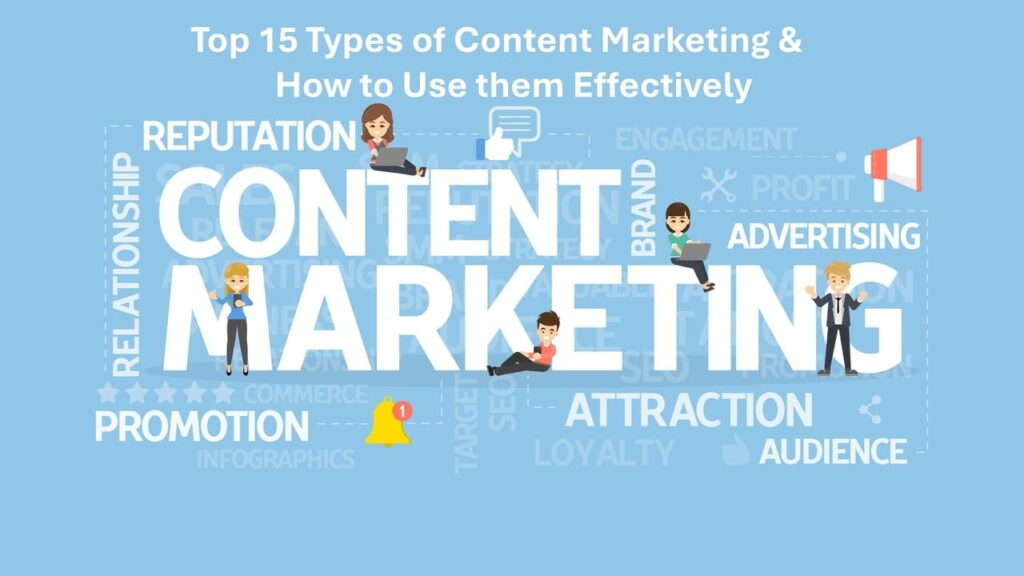 Introduction Content is the king, and marketing is its kingdom. In today’s hyper-connected digital world, content marketing is more than just a buzzword—it’s the soul of online growth. Whether you’re a solopreneur, startup, or enterprise,… Read more: Top 15 Types of Content Marketing and How to Use Them Effectively in 2025
Introduction Content is the king, and marketing is its kingdom. In today’s hyper-connected digital world, content marketing is more than just a buzzword—it’s the soul of online growth. Whether you’re a solopreneur, startup, or enterprise,… Read more: Top 15 Types of Content Marketing and How to Use Them Effectively in 2025 - Top 10 Social Media Marketing Strategies in 2025 for Brand Growth
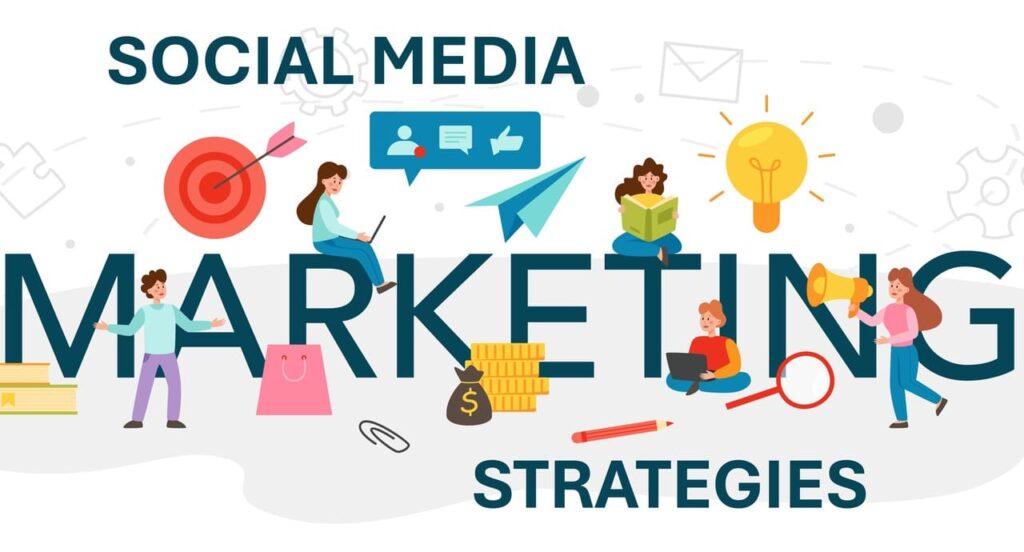 Introduction In 2025, social media marketing strategies has transformed into a data-driven, AI-empowered, and deeply personalized ecosystem. Brands no longer just post and hope for engagement—they leverage smart strategies, tools, and technologies to build communities,… Read more: Top 10 Social Media Marketing Strategies in 2025 for Brand Growth
Introduction In 2025, social media marketing strategies has transformed into a data-driven, AI-empowered, and deeply personalized ecosystem. Brands no longer just post and hope for engagement—they leverage smart strategies, tools, and technologies to build communities,… Read more: Top 10 Social Media Marketing Strategies in 2025 for Brand Growth - What is Social Media Marketing and Its Benefits in 2025
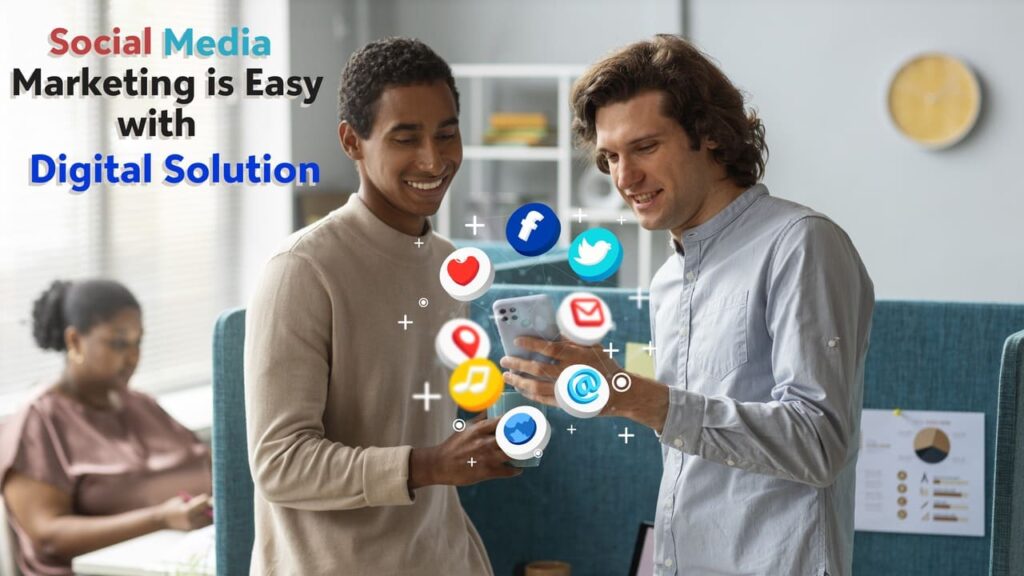 Introduction: Welcome to the Era of Digital Conversations Imagine trying to run a business in 2025 without an online presence. Feels impossible, right? That’s because social media marketing isn’t just for fun anymore—it’s serious business.… Read more: What is Social Media Marketing and Its Benefits in 2025
Introduction: Welcome to the Era of Digital Conversations Imagine trying to run a business in 2025 without an online presence. Feels impossible, right? That’s because social media marketing isn’t just for fun anymore—it’s serious business.… Read more: What is Social Media Marketing and Its Benefits in 2025 - What is Content Marketing & Why It’s Crucial in 2025 | Complete Guide
 Introduction What is Content Marketing? Content marketing is all about creating and sharing valuable, relevant, and consistent content to attract and retain a clearly defined audience and ultimately, to drive profitable customer actions. In simpler… Read more: What is Content Marketing & Why It’s Crucial in 2025 | Complete Guide
Introduction What is Content Marketing? Content marketing is all about creating and sharing valuable, relevant, and consistent content to attract and retain a clearly defined audience and ultimately, to drive profitable customer actions. In simpler… Read more: What is Content Marketing & Why It’s Crucial in 2025 | Complete Guide - How to Get Google Adsense Approval for New Blog in 2025
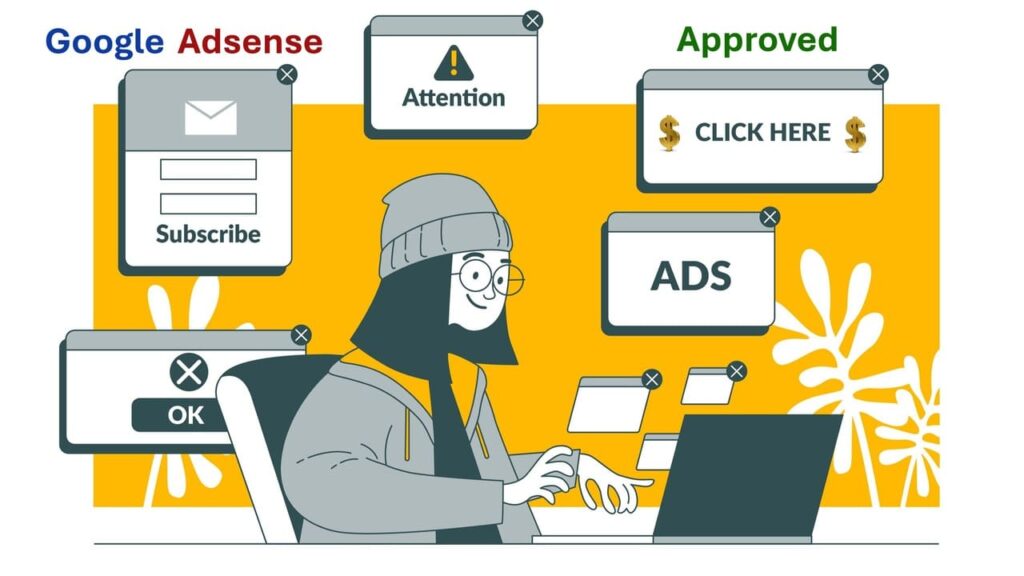 1. Introduction Discover how to get Google AdSense approval for your new blog in 2025 with this step-by-step guide. Learn key requirements, content tips, common mistakes to avoid, and how to increase your chances of… Read more: How to Get Google Adsense Approval for New Blog in 2025
1. Introduction Discover how to get Google AdSense approval for your new blog in 2025 with this step-by-step guide. Learn key requirements, content tips, common mistakes to avoid, and how to increase your chances of… Read more: How to Get Google Adsense Approval for New Blog in 2025 - Top 10 Important WordPress Plugins with Features and Usability
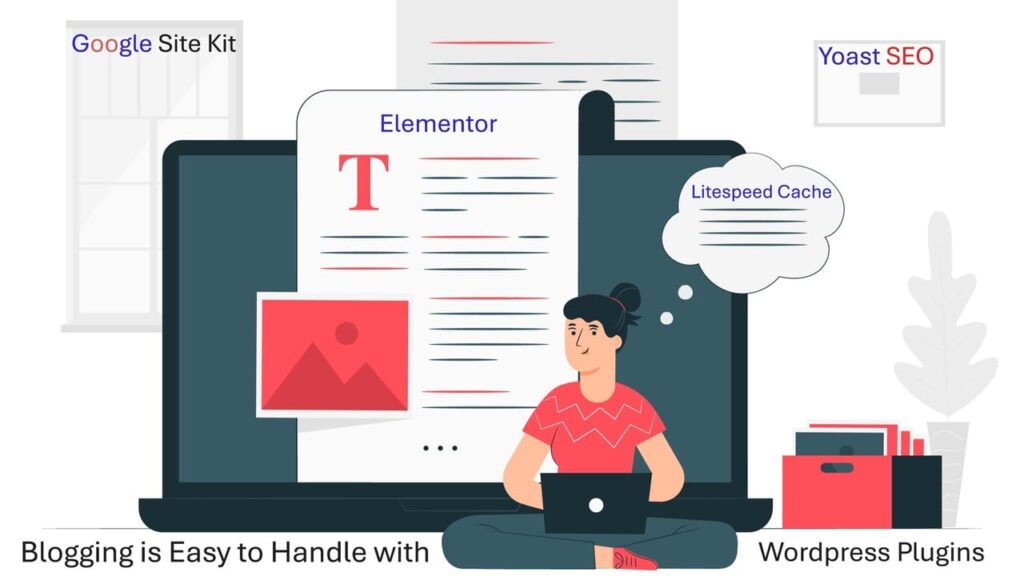 Introduction If you’re diving into the world of WordPress, you’ve likely heard of wordpress plugins. But what are they really? Think of plugins as the apps for your website. Whether you’re building a blog, eCommerce… Read more: Top 10 Important WordPress Plugins with Features and Usability
Introduction If you’re diving into the world of WordPress, you’ve likely heard of wordpress plugins. But what are they really? Think of plugins as the apps for your website. Whether you’re building a blog, eCommerce… Read more: Top 10 Important WordPress Plugins with Features and Usability - What is Technical SEO? Beginner’s Guide for 2025
 Introduction Learn what technical SEO means, why it matters, and how to start perfect for beginners stepping into the SEO world. You’re writing amazing content, and still, your blog isn’t showing up on Google like… Read more: What is Technical SEO? Beginner’s Guide for 2025
Introduction Learn what technical SEO means, why it matters, and how to start perfect for beginners stepping into the SEO world. You’re writing amazing content, and still, your blog isn’t showing up on Google like… Read more: What is Technical SEO? Beginner’s Guide for 2025 - What are the Core Concepts of Digital Marketing? A Complete Beginner’s Guide
 Introduction What Is Digital Marketing? Discover the core concepts of Digital Marketing including SEO, content marketing, social media, PPC, and more. Learn how these strategies work together to grow your online presence in 2025. Digital… Read more: What are the Core Concepts of Digital Marketing? A Complete Beginner’s Guide
Introduction What Is Digital Marketing? Discover the core concepts of Digital Marketing including SEO, content marketing, social media, PPC, and more. Learn how these strategies work together to grow your online presence in 2025. Digital… Read more: What are the Core Concepts of Digital Marketing? A Complete Beginner’s Guide - On-Page vs Off-Page SEO: Key Differences, Strategies & Benefits Explained
 Introduction Search Engine Optimization (SEO) is like the secret recipe behind every website that dominates Google search results. Whether you’re running a blog, an online store, or a corporate website, SEO helps your content get… Read more: On-Page vs Off-Page SEO: Key Differences, Strategies & Benefits Explained
Introduction Search Engine Optimization (SEO) is like the secret recipe behind every website that dominates Google search results. Whether you’re running a blog, an online store, or a corporate website, SEO helps your content get… Read more: On-Page vs Off-Page SEO: Key Differences, Strategies & Benefits Explained - What Are Backlinks? A Complete Guide to Building Powerful Links for SEO
 Introduction Discover everything about backlink and how they impact Search Engine Optimization rankings. Learn the types of backlinks, link-building strategies, common mistakes to avoid, and the Digital marketing best tools to monitor your backlink profile… Read more: What Are Backlinks? A Complete Guide to Building Powerful Links for SEO
Introduction Discover everything about backlink and how they impact Search Engine Optimization rankings. Learn the types of backlinks, link-building strategies, common mistakes to avoid, and the Digital marketing best tools to monitor your backlink profile… Read more: What Are Backlinks? A Complete Guide to Building Powerful Links for SEO - What is SEO in Digital Marketing? A Beginner-Friendly Guide to Ranking Higher in 2025
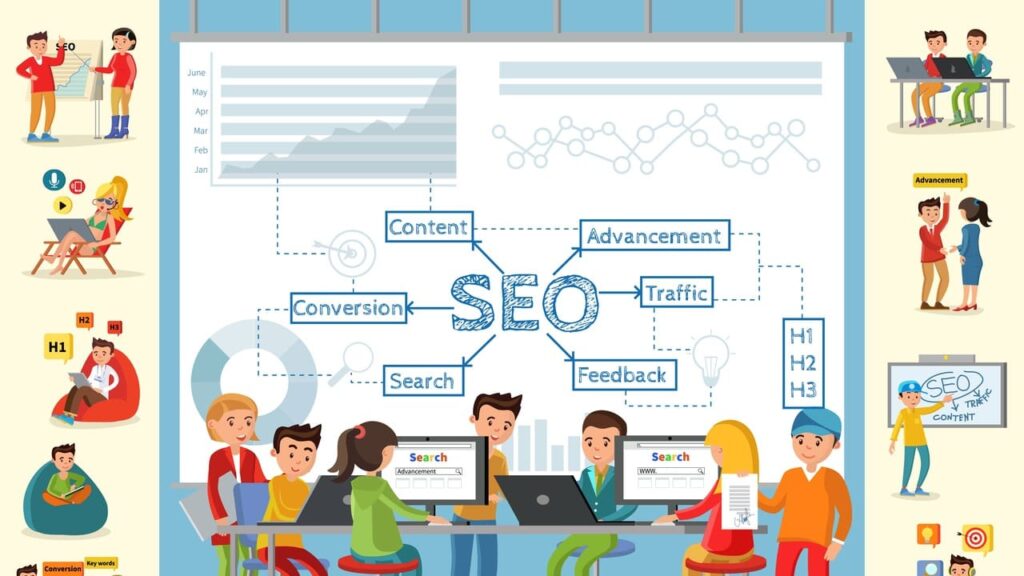 Introduction Discover what SEO in Digital Marketing really means, why it matters, and how it works. Learn proven Search Engine Optimization strategies, tools, and tips to boost your website traffic and rankings in 2025. So,… Read more: What is SEO in Digital Marketing? A Beginner-Friendly Guide to Ranking Higher in 2025
Introduction Discover what SEO in Digital Marketing really means, why it matters, and how it works. Learn proven Search Engine Optimization strategies, tools, and tips to boost your website traffic and rankings in 2025. So,… Read more: What is SEO in Digital Marketing? A Beginner-Friendly Guide to Ranking Higher in 2025 - How to Write a Perfect SEO Blog Post: Step-by-Step Guide
 1. Introduction Blogging isn’t just for hobbyists anymore—it’s a powerful tool for businesses, influencers, and thought leaders. Whether you’re looking to build your brand, generate leads, or simply share your passion, writing the perfect SEO… Read more: How to Write a Perfect SEO Blog Post: Step-by-Step Guide
1. Introduction Blogging isn’t just for hobbyists anymore—it’s a powerful tool for businesses, influencers, and thought leaders. Whether you’re looking to build your brand, generate leads, or simply share your passion, writing the perfect SEO… Read more: How to Write a Perfect SEO Blog Post: Step-by-Step Guide - How to Build WordPress Website Easy, Fast & Professional
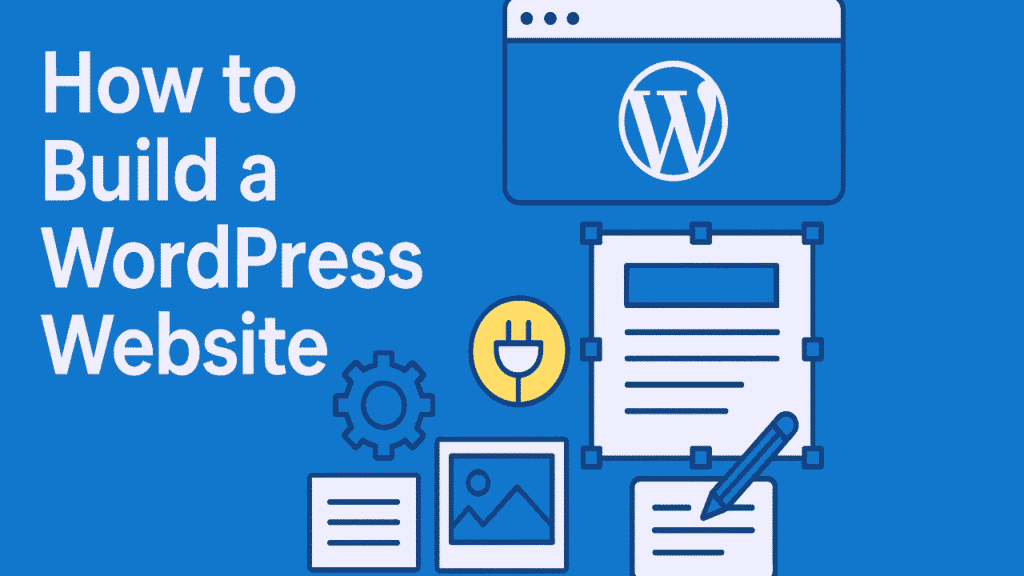 Introduction What is WordPress? Learn how to build a WordPress website step-by-step. From choosing a domain and hosting to customizing themes, installing plugins, optimizing for SEO, and launching your fully functional website. WordPress is like… Read more: How to Build WordPress Website Easy, Fast & Professional
Introduction What is WordPress? Learn how to build a WordPress website step-by-step. From choosing a domain and hosting to customizing themes, installing plugins, optimizing for SEO, and launching your fully functional website. WordPress is like… Read more: How to Build WordPress Website Easy, Fast & Professional - Build a Free Website in Minutes – Easy Guide for Beginners to PRO
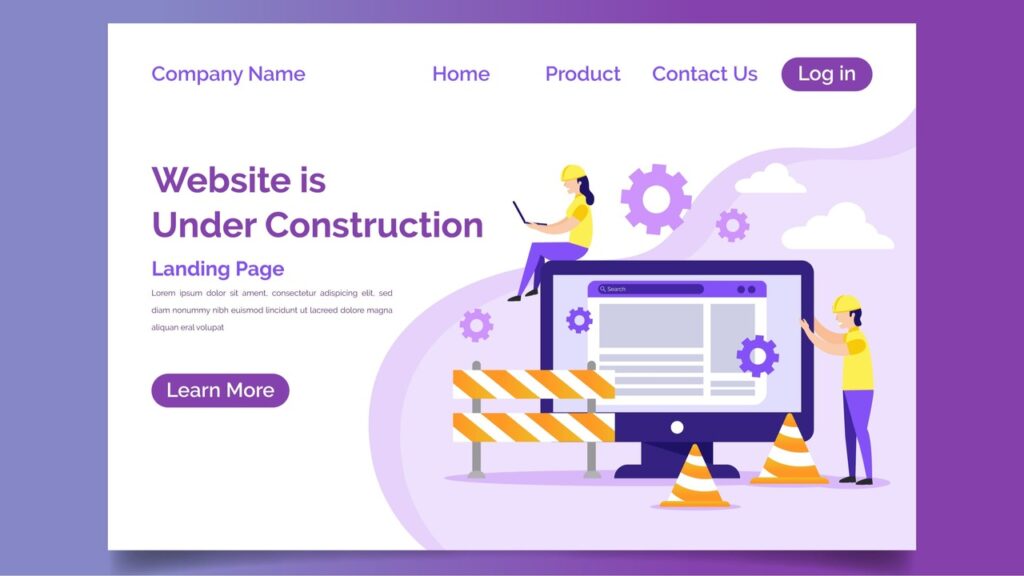 Introduction We introduces the concept of free website building without spending money it is the part of Digital Marketing, dispels the myth that it requires coding skills, and encourages readers with limited budgets or beginners… Read more: Build a Free Website in Minutes – Easy Guide for Beginners to PRO
Introduction We introduces the concept of free website building without spending money it is the part of Digital Marketing, dispels the myth that it requires coding skills, and encourages readers with limited budgets or beginners… Read more: Build a Free Website in Minutes – Easy Guide for Beginners to PRO
